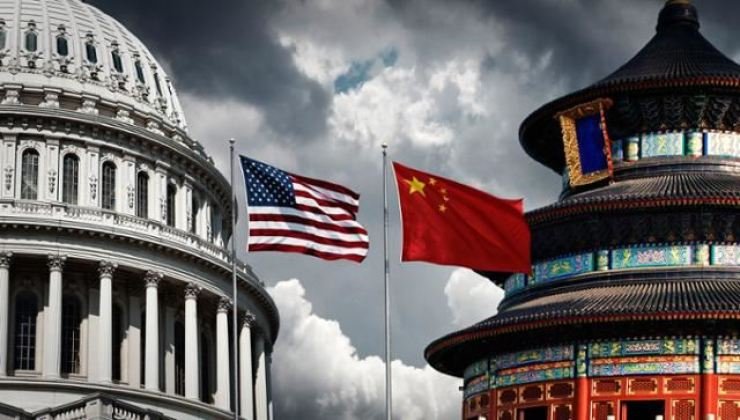In recent years, the global geopolitical landscape has witnessed a tectonic shift with several middle powers taking an independent stance on the Russia-Ukraine war and diminishing economic and military clout of the US. The world is now looking beyond the China-US rivalry, exploring new avenues of trade and collaboration with other nations.
The independent stance of middle powers is not limited to the Russia-Ukraine conflict, as many nations seek to break away from the traditional power dynamics of the US-dominated world order. This shift is evident in the growing interest in multilateralism and regional cooperation, as seen in the increased participation in organizations like the Shanghai Cooperation Organization (SCO) and the Association of Southeast Asian Nations (ASEAN).
You can also read: Promising developments: Bangladesh-US relations on a positive track?
Furthermore, the focus on regional economic integration, exemplified by the Regional Comprehensive Economic Partnership (RCEP), shows that countries are increasingly looking to strengthen economic ties within their regions as a means of mitigating the impact of global economic turbulence. This trend has important implications for developing countries like Bangladesh, which can benefit from enhanced regional cooperation and trade integration.
Independent stance of middle powers
Several middle powers such as India and Japan have been taking an independent stance on the Russia-Ukraine war, highlighting the waning influence of the US. India has been purchasing oil at discounted prices from Moscow, while also seeking to expand economic ties with Russia. The two countries are also holding talks regarding a Free Trade Agreement (FTA). Similarly, Japan has been purchasing oil from Russia above the price cap set by G7. These actions indicate that middle powers are increasingly looking for alternative sources of energy and markets for their products, beyond the traditional US-dominated order.
De-dollarization
There is also increasing talk of ‘De-dollarization’ i.e., reducing dependency on the US dollar for global trade. In the aftermath of the Russia-Ukraine war due to the imposition of sanctions many countries have been exploring non-dollar trade. In the past year, Yuan-Rouble trade has increased. During Chinese President Xi Jinping’s visit to Russia, Russian President Vladimir Putin said that they are in favour of using the Chinese yuan for settlements between Russia and the countries of Asia, Africa and Latin America. Similarly, India and Russia have set up a mechanism for Rupee-Rouble trade. Saudi Arabia has also said that it is willing to trade in non-dollar currencies. These actions indicate that countries are increasingly looking to reduce their dependency on the US dollar and explore other options.

China’s role in brokering important agreements
China’s role in brokering the Saudi-Iran agreement, which will have significant impact on the geopolitical architecture of the Middle East, is another instance of the decline of US influence. While initially, the US welcomed the deal, senior US officials are supposed to have expressed their displeasure in private to Saudi officials for being kept out of the loop with regard to the deal. Many EU nations have also sent out clear signals that they will not toe the US policy vis-à-vis China but give precedence to their economic interests.
The India-China-US triangle
While it is true that Washington is losing its influence, an ‘anti-US/West narrative’ cannot be a binding factor for countries. There is no doubt that India will have strong convergence with Russia on multiple issues, but it is important not to lose sight of the increasingly strained relations between India and China. Significantly, India has developed close strategic and economic relations with the US over the past two decades bilaterally and in recent years under the umbrella of Free and Open Indo-Pacific. While India is part of China dominated organizations like the Shanghai Cooperation (SCO), and Beijing and New Delhi need to have a working relationship on multilateral platforms, it is unrealistic to expect significant cooperation given the state of the bilateral relationship.
Implications for Bangladesh
The changing global geopolitical architecture has important implications for Bangladesh as it is a developing country moving forward with a rapid growth. Bangladesh, being a middle power in South Asia, can play a proactive role in shaping the emerging order. It can explore new avenues of cooperation with countries like Russia, China, and Saudi Arabia. It can also explore the possibility of de-dollarization and look for alternative sources of energy. However, Bangladesh needs to tread cautiously and strike a balance between its economic interests and strategic imperatives. It cannot afford to take sides in the emerging geopolitical architecture and needs to pursue a policy of strategic autonomy.
To conclude, the global geopolitical landscape is witnessing a tectonic shift, with several middle powers taking an independent stance and the diminishing economic and military clout of the US. The world is looking beyond the China-US rivalry and exploring new avenues of trade and collaboration with other nations. The independent stance of middle powers, de-dollarization, China’s role in brokering important agreements, and the India-China-US triangle are some of the important trends in the global geopolitical architecture. These trends have important implications for Bangladesh and other developing countries, which need to tread cautiously and strike a balance between their economic interests and strategic imperatives. In this emerging order, strategic autonomy is key. It is up to the countries to explore new avenues of cooperation and shape the emerging order.


